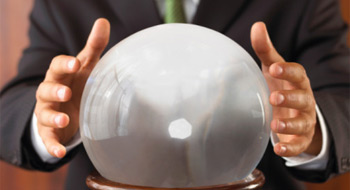

Japan’s Nikkei index has performed well over the past couple of years. In 2013, the index jumped 57% and rose another 7% this year.
But it’s also been a rough 25 years for the market, which closed at 38,916 on Dec. 29, 1989. It closed at 17,450 on Dec. 30, 2014.
Hayes Miller, North American head of asset allocation for Baring Asset Management, spoke to BenefitsCanada.com about the outlook for Japan.
Q. Do you think the Nikkei will ever hit its high again?
It’s very, very difficult to talk about never. We have to go back in that time frame and remember how overvalued the market had become. The Nikkei 225 peak from 2006 was about 18,200 and prior to that in 2000 it was 20,800. Prior to that in 1996, it was about 22,530, so you’ve had successive lower peaks from the ’80s. But you have to remember there was a period in the ’80s when the value of the Imperial Palace, the value of that real estate was greater than the value of the real estate in the state of California. The amount of price inflation from the ’70s and ’80s was off the charts. So a lot of the reason we’ve seen this downward draft of equity prices and the peaks have fallen is because of this asset deflation.
In 1980, the [price-to-earnings] (PE) ratio in Japan was 66. It’s only been in the last two years that PEs have fallen below the level for the MSCI World as a whole. And now PEs are running at lower than the U.S. and Europe and the return on equity is higher than that of Europe. It’s really taken since 1980 to about 18 months ago for the market to fully correct from the overvaluations of the ’80s.
Read: U.S. economy expected to grow faster than Canada’s
Q. What’s your outlook on Japan?
The biggest concern that we have about the Japanese market and the Japanese reform agenda is the issue of demographics. Because it is very difficult to grow an economy when productivity growth has to offset population growth. It’s very difficult to have negative population growth and offset that completely with productivity enhancement because you have to innovate like mad to do that. It was easier for the Japanese to innovate in the ’70s and ’80s because the Chinese economy was so less further along than the Japanese. But now the Chinese economy is a huge competitor to the Japanese economy.
Read: International trade to drive economic growth
Q. Are you concerned about political instability in Japan?
No, their politics have been difficult admittedly, in part, because it’s been hard to be as bold as was required to offset the deflationary side of their economy. Right now we’re living in a period where we have an unprecedented degree of positive approval ratings for a sitting prime minister after this number of years in office.
All [Prime Minister Shinzo Abe] has to do is make sure that he doesn’t push his interest groups so far that they begin to create problems for him, particularly within his own party. I think he’s going to have the longest post-war period of popular support, which should allow him to accomplish a lot of things that have been difficult to do for the last 20 years.
Read: 2015 outlook: Sunny with a chance of recession
Q. How is Japan trying to promote growth?
You would normally like to give tax reductions to corporations to try to stimulate corporate growth and wages. Unfortunately, that’s revenue you can’t afford, so you have to make it up some other way so you increase consumption taxes.
Abe would like to get corporate taxes from 33% to about 23% to 24%, which would make it competitive with the rest of the world and in order to do that he has to raise consumption taxes from where they were to 10%. He’s chosen to take this in two stages, but we have yet to see actual reductions in corporate taxes and where corporate taxes are going to be.
He hoped that reduced corporate taxes would end up flowing to wage growth. That increased income would offset the increase in taxes. But this is such a slow-moving process that it’s hard for people on a month-by-month basis to sort of see it working. It’s all unfolding at a much more measured pace.
I think that for the No. 3 economy in the world to be growing at a real rate and to be expanding because of inflation is simply positive for other markets because of Japanese imports to grow.
